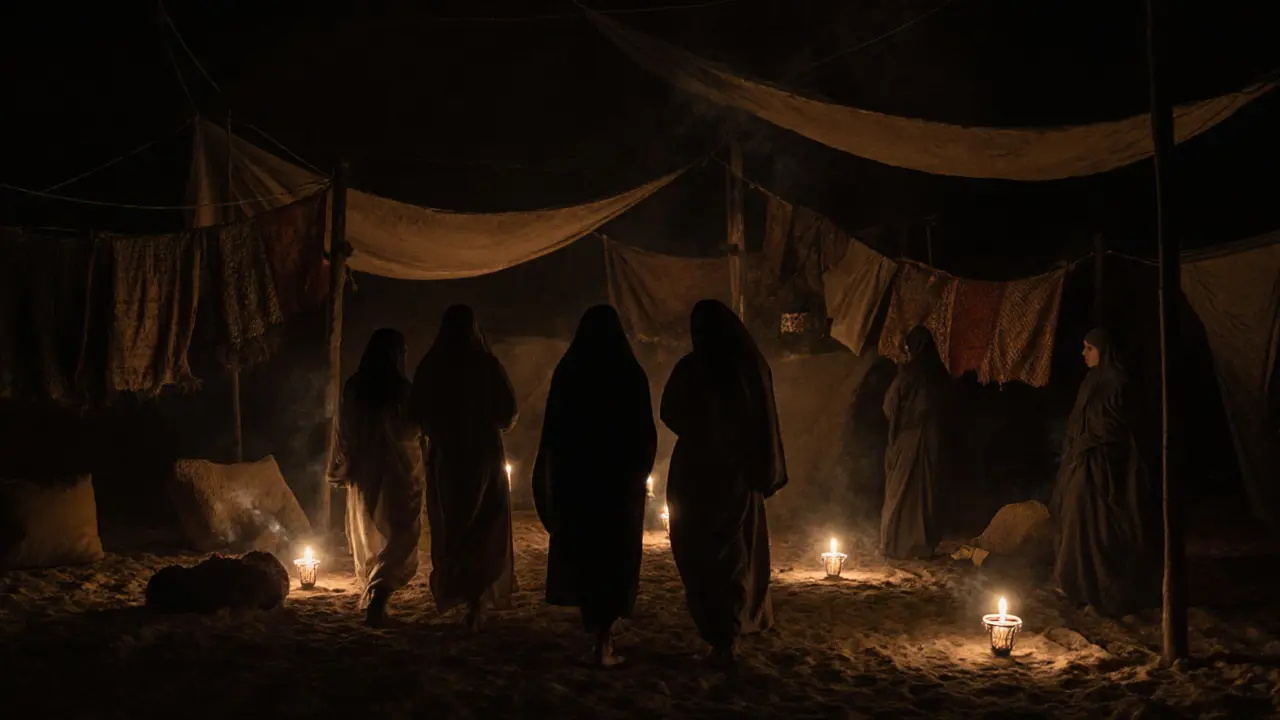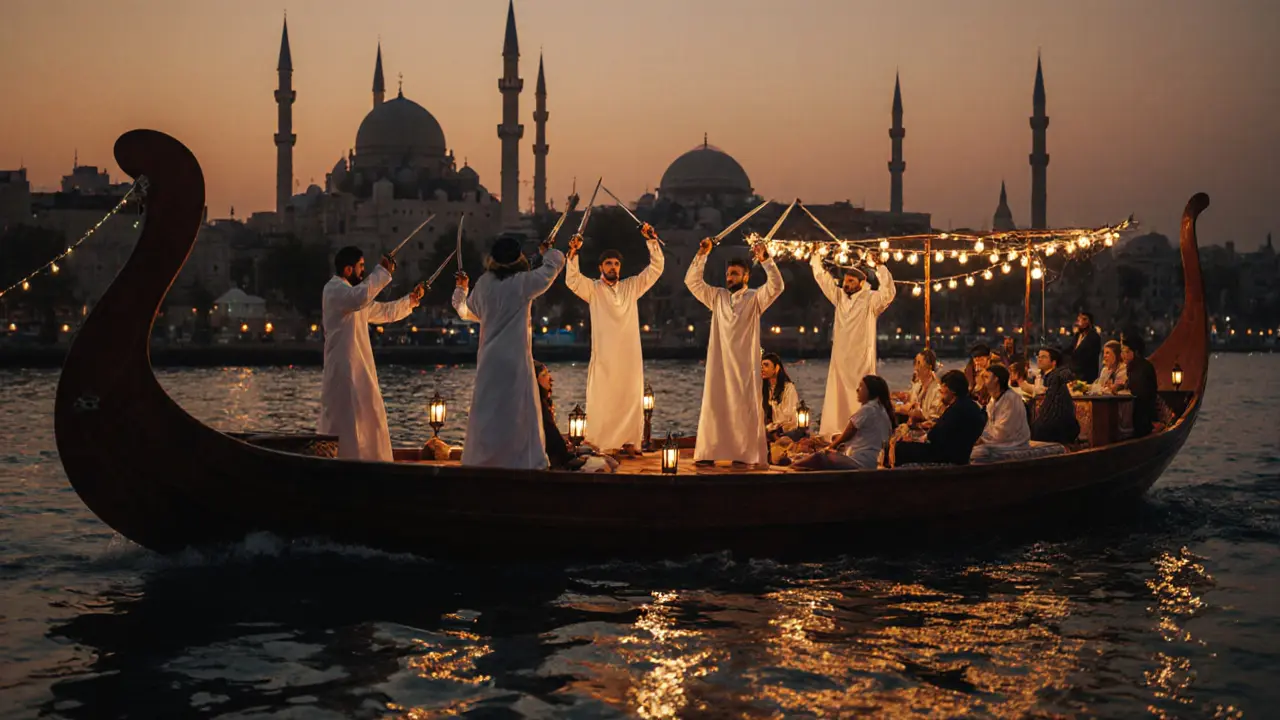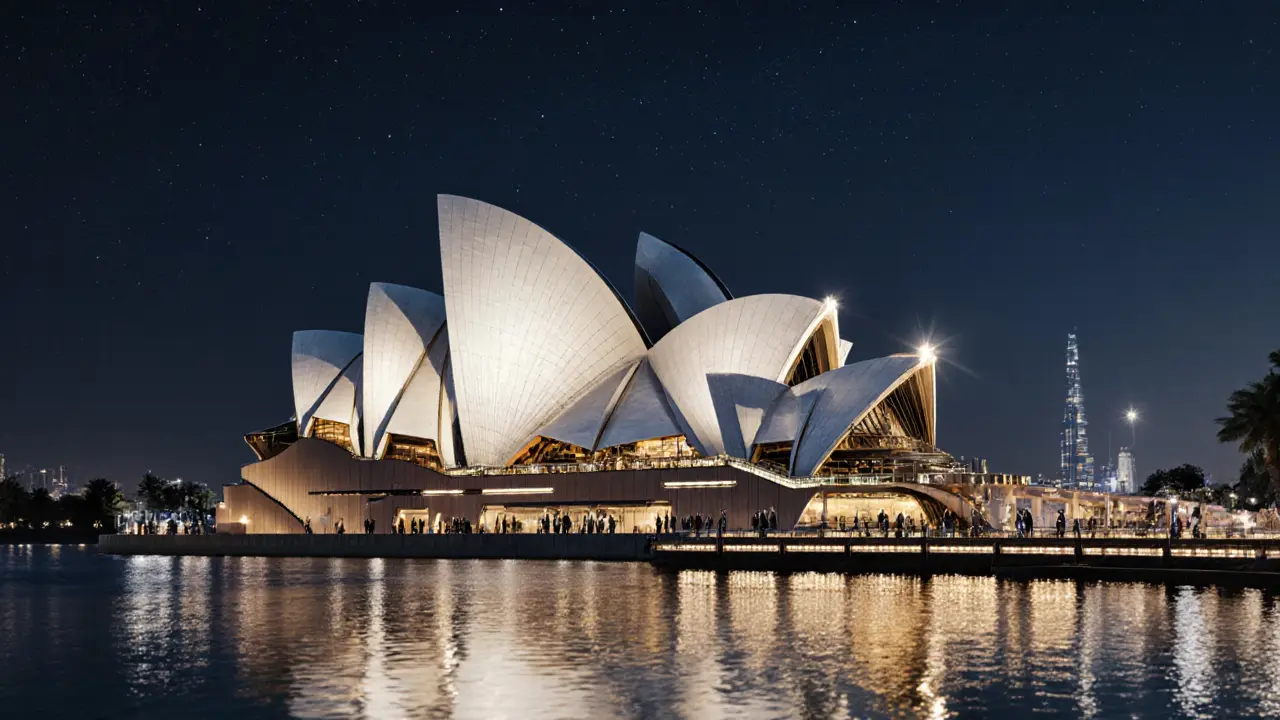20 Nov 2025
- 0 Comments
Dubai isn’t just about skyscrapers and desert safaris. When the sun sets, the city transforms into a vibrant hub of live culture - where traditional Arabic storytelling meets cutting-edge theatre, and world-class orchestras echo through glass-walled auditoriums. If you’re looking for nightlife that’s more than clubs and cocktails, Dubai delivers unforgettable evening performances that stick with you long after the final curtain.
Where Culture Comes Alive After Dark
Dubai’s cultural scene doesn’t wait for daylight. Unlike other cities where nightlife means loud music and crowded bars, here, the night belongs to art. The Dubai Opera, opened in 2016, set a new standard. It’s not just a venue - it’s a landmark. Its sail-shaped design glows against the skyline, and inside, you’ll find everything from Shakespearean dramas to Bollywood musicals. Over 400 performances a year draw locals and tourists alike, making it the heartbeat of Dubai’s evening culture.
Don’t expect just Western plays. The Dubai Opera regularly hosts Arabic theatre productions, including adaptations of classic Emirati folk tales. In 2024, a reimagined version of Aladdin and the Magic Lamp, performed entirely in Arabic with traditional Oud music and shadow puppetry, sold out for three straight months. It wasn’t a tourist gimmick - it was a cultural reset.
The Dubai Opera: More Than a Building
The Dubai Opera isn’t just a place to sit and watch. It’s designed for immersion. The main hall seats 2,000 people, but the acoustics are so precise that even a whisper from the stage reaches the back row. The stage can transform in minutes - from a classical concert setup to a full-scale opera with flying sets. It’s one of the few venues in the Middle East that hosts full-scale ballets, like Swan Lake by the Mariinsky Ballet, alongside stand-up comedy nights and TED-style talks.
Evenings here start early. Doors open at 6:30 p.m., and many guests grab dinner at the on-site restaurant, La Petite Maison, before the show. A pre-show cocktail with a view of the Burj Khalifa is part of the ritual. Tickets range from AED 150 for standing seats to AED 2,500 for VIP boxes. But you don’t need to spend big to get a great experience - last-minute discounts are common, and student rates are half price.
Alserkal Avenue: The Underground Cultural Scene
If you want something grittier, more intimate, and deeply local, head to Alserkal Avenue in Al Quoz. This industrial-turned-artistic district is where Dubai’s experimental artists thrive. By night, warehouses become theatres. One space, 8941, hosts monthly spoken word nights where Emirati poets blend Arabic poetry with hip-hop beats. Another, Theatre of the Absurd, stages avant-garde plays about identity, migration, and modern Gulf life - often with no subtitles, forcing the audience to feel the emotion, not just understand the words.
In 2025, a new performance called Desert Echoes debuted here. It’s a 70-minute immersive experience where 12 audience members at a time walk through a recreated Bedouin camp while actors narrate oral histories of desert tribes. The scent of frankincense, the sound of camel bells, and the flicker of oil lamps make it feel less like a show and more like a memory.

Traditional Arabic Nights: Dhow Cruises and Folklore
For something timeless, hop on a dhow cruise along Dubai Creek. These wooden boats, once used for pearl diving, now serve as floating stages for traditional performances. At sunset, you’ll be served Arabic coffee and dates, then treated to a live Yowlah dance - a rhythmic, drum-heavy performance by men in white thobes, waving swords in synchronized motion. It’s not staged for tourists; it’s passed down through generations.
On Friday nights, the Dubai Folklore Nights series runs at the Al Shindagha Museum. Local storytellers recount tales of sea monsters, desert ghosts, and ancient trade routes - all told in the Gulf dialect. Children sit cross-legged on cushions, wide-eyed, while elders nod along, recognizing lines their grandparents once spoke. It’s rare to find living culture this untouched in a city known for its speed.
International Acts and Surprise Performances
Dubai pulls in global talent like no other city its size. In 2024, the Royal Shakespeare Company brought a gender-swapped Macbeth to the Dubai Opera. A Japanese Noh theatre troupe performed in complete silence, using only masks and subtle hand movements - and sold out in 48 hours. Even lesser-known acts find audiences here. A Syrian oud player, exiled from Aleppo, now performs weekly at the Al Maktoum House café. His music, raw and haunting, draws crowds of 80+ people every Thursday.
Some of the best shows aren’t advertised. Keep an eye on Dubai Arts Society’s Instagram. They drop surprise pop-up performances - a flamenco dancer in the Dubai Mall atrium, a silent film with live piano accompaniment at the Museum of the Future, or a group of Iranian shadow puppeteers in a parking lot near Jumeirah. These aren’t tourist traps. They’re moments of unexpected beauty.

What to Wear and How to Plan
Dress codes vary. At the Dubai Opera, smart casual is expected - no shorts or flip-flops. At Alserkal Avenue, jeans and a t-shirt are fine. For dhow cruises, light fabrics work best - it gets humid on the water. Always book ahead. Even local shows sell out fast. Use the Dubai Culture app to find events, buy tickets, and get real-time updates on weather delays or last-minute cancellations.
Plan your night like a local: start with dinner at a rooftop restaurant like At.mosphere, catch the show at 8 p.m., then head to a quiet lounge like Barasti for a mint tea and conversation. The best nights in Dubai don’t end at midnight - they end when the last story is told.
Why This Matters
Dubai’s cultural nightlife isn’t just entertainment. It’s a bridge. Between tradition and modernity. Between East and West. Between generations. In a city that’s often criticized for being all surface, these performances reveal depth. They’re proof that culture doesn’t need centuries to take root - it just needs space, respect, and people willing to show up.
Are there any free cultural performances in Dubai at night?
Yes. While major venues like the Dubai Opera charge admission, free performances happen regularly. Alserkal Avenue hosts open mic nights and pop-up theatre on weekends. The Dubai Culture app lists free events like the monthly poetry slam at the Dubai Frame and silent film screenings at the Dubai International Financial Centre. Also, during Dubai Shopping Festival and Dubai Culture Week, many outdoor stages offer free access to traditional dance and music.
Is Dubai’s cultural nightlife family-friendly?
Absolutely. Many shows are designed for all ages. The Dubai Opera offers family matinees with discounted tickets, and productions like The Lion King and Peter Pan are staged regularly. Folklore nights on dhow cruises and Al Shindagha’s storytelling events are especially popular with children. Just check the age recommendation on tickets - most performances under 90 minutes are suitable for kids 6 and up.
How do I find out about last-minute shows?
Follow the official Dubai Culture Instagram account and download their app. They post real-time updates on cancellations and added shows. Local expat groups on Facebook, like "Dubai Events & Nightlife," often share unadvertised gigs - like a jazz trio playing in a bookstore or a Moroccan Gnawa band at a rooftop garden. Some venues, like Alserkal’s Warehouse 421, don’t even have websites - you have to show up and ask.
Can I buy tickets on the day of the show?
It’s risky. Popular shows at the Dubai Opera sell out days in advance. But for smaller venues like Alserkal Avenue or pop-up events, tickets are often available at the door. Try arriving 30 minutes before showtime - if there are no lines, you might get in. Some venues hold back 10-15% of seats for walk-ins, especially for experimental or non-English performances.
What’s the best time of year to experience Dubai’s cultural nightlife?
October through March is ideal. The weather is cooler, and most cultural events are scheduled during this period. Dubai Culture Week (late January) and the Dubai International Theatre Festival (February) feature the highest concentration of performances. Summer months have fewer shows due to heat, but you’ll still find indoor venues like the Dubai Opera and Alserkal Avenue operating year-round.
